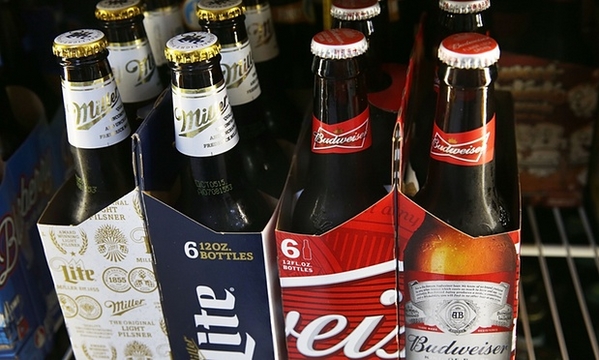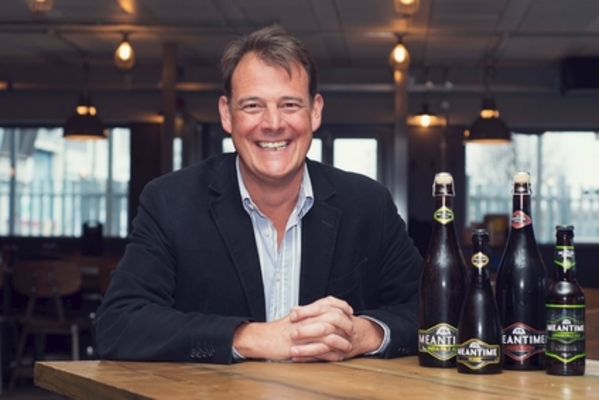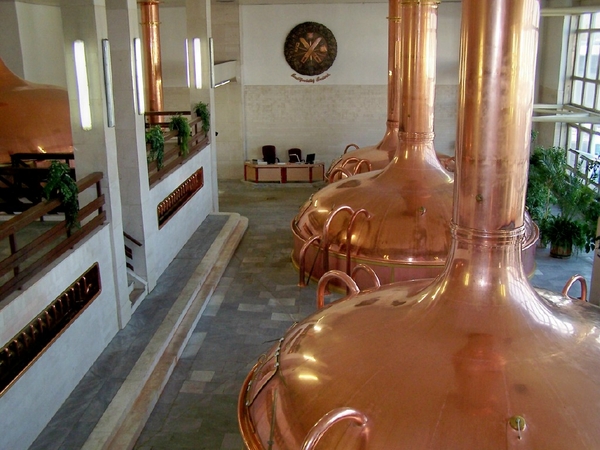Giant takeover passes its fizzical
Added: Tuesday, October 13th 2015

The £67.4 billion takeover of SABMiller by AB InBev is both frightening and encouraging. It’s frightening in the sense that the merged group will control one third of world beer production. It’s encouraging because it signals the impact craft beer has made in the traditional markets of Europe, North America and Australasia, which has eaten into the sales and influence of the mega brewers.
The merger has been driven principally by the need to dominate the emerging markets of Africa, Asia and the old Soviet bloc, but its impact will be felt in older sectors too.
These giant companies have enormous marketing muscle. Look at the way Molson Coors has turned Doom Bar into the leading ale on draught and in bottle in the UK. There’s a similar pattern in the United States where AB InBev has boosted sales of Chicago’s Goose Island IPA and Honkers Ale and built a new “facility” on the East Coast to give the brands greater reach.
They’ve been rebranded simply “Goose” in the hope, no doubt, that they will lay golden eggs.
Earlier this year, SABMiller bought the acclaimed Meantime Brewery in Greenwich, with promises to turn it into a “European centre of excellence”. That plan may turn to dust when the hard-nosed accountants at AB InBev run the ruler over Meantime’s costs. They will point out that rice and maize are cheaper alternatives to malting barley while hop extract costs a fraction of the whole flower versions.
Nick Miller (below) and Alistair Hook banked millions when they sold Meantime to SABMiller but they may soon realise that gold can leave a bitter, unpleasant taste in the mouth.
The merged group will without doubt continue to buy craft breweries in the U.S. and Europe. It has trading links with Kirin of Japan, which dominates brewing Down Under. AB InBev’s main interest, however, has been to grab SABMiller’s enormous influence in Africa and to reach out to the fast-growing and well-heeled middle classes in China, Russia and other regions of Asia the Baltics and eastern Europe.
SABMiller may be registered as a British company, but SAB stands for South African Breweries, which has an awesome presence in that part of the world. AB In Bev, an unwieldy amalgam of Anheuser Busch, Ambev of Brazil and InBev of Belgium, is keen to build a bigger presence in Africa. It’s the Brazilians who call the shots and they have a hard-nosed record of closing breweries and centralising production in order to reduce costs.

Just how far these “brewing” [sic] giants are from the world of real beer can be seen by the companies that have a major stake in them. Altria, the owner of Philip Morris cigarettes, controls 27% of SABMiller.
Bevco, owned by the massively wealthy Santo Domingo family of Columbia, owns a further 14%. It runs the Bavaria brewery but also produces soft drinks, wine and spirits, and runs TV and radio stations. Its head, Julio Mario Santo Domingo Pumarejo, is one the world’s wealthiest men with a fortune of $8 billion.
In South Africa, a further major investor in SABMiller is the Public Investment Corporation that has no interest in brewing but seeks to facilitate takeovers and mergers and has merely queried the financial aspects of the deal with AB InBev. The fifth largest shareholder in SABMiller is Kulczyk Investments, registered in London but founded by Polish entrepreneur Jan Kulczyk with the aim of looking for “opportunities in emerging global markets”. As well as beer, the company is also involved in mining and gas.
Kulczyk will find an abundance of gas in the merged global beer giant. Its main brands will include Budweiser, Miller Lite, Peroni, Stella Artois, Hoegaarden, Grolsch, Pilsner Urquell, Beck’s, Corona, Kozel, Radegast, Leffe, Castle, Tyskie, Bohemia, Lion, Weinhard, Leinenkugel and Dirty Granny. Yes, there really is a beer called Dirty Granny in Australia. More importantly, SABMiller owns Australia’s leading brand VB or Victoria Bitter.
In order to satisfy American regulators, the trading deal in the U.S. between Miller and Coors may have to end. It’s not likely, however, that the British government will interfere with “the free play of the market”, though the sale of such cast-off brands as Bass, Boddingtons and Flowers could be speeded up.
In the longer term, as brewing history shows, a merger steam roller usually gathers pace. Carlsberg and Heineken already work in partnership in Europe, west and east, and their intricate family structures will probably keep them safe from takeover. Diageo, whose main interests lie in whisky and wine, is rumoured to be contemplating off-loading Guinness and the Irish stout would fit well with AB InBev’s Africa push. Further deals with Kirin should not be ruled out. If the state-owned Budweiser Budvar in the Czech Republic (below) is eventually privatised, AB InBev may seek to end the long dispute between the two Budweiser brands by buying the brewery in Ceske Budejovice. One can only imagine what the accountants would make of Budvar’s 90-day lagering regime and would recall John McEnroe’s cry of “You cannot be serious”.
Successful craft brewers should man the barricades while for the time being we await with interest the name of the newly-merged world giant. Fizz Corp anyone?








